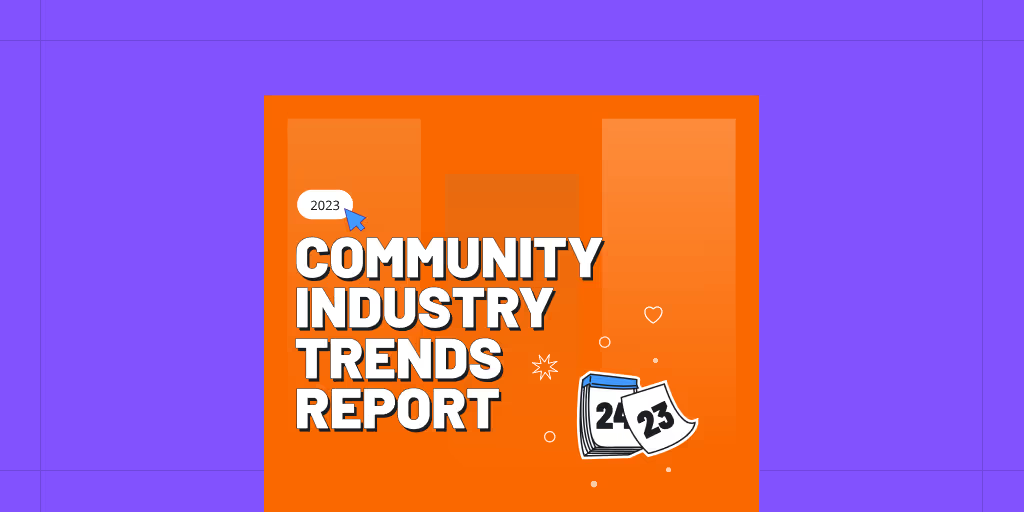Curious about what the future holds for the community? Wondering what trends will shape the industry in the coming years? – It's that time of the year again when we gather to find the answers to these questions. The 5th annual Community Industry Report is here, and we couldn't be more excited to share it with you!
The half report, half manifesto, and half love letter to the community industry are how we would describe this year's Community Industry Report. It's like the report is telling us to brace ourselves for turbulence but also showing us the glimmers of hope. It's a delicate balance, which makes this year's report so exciting.
Contradictory words are at the heart of this year's report: contraction and commitment. On the one hand, the industry is contracting and adapting to a changing landscape. On the other side, there is a firm commitment to the community and a determination to make it work. You might think these two words are at odds with each other, but here's the thing: as we explore the six key findings of this year's report, we'll show you how the industry navigates this tension and shapes its future.
Let's dive in and give you a sneak peek at the six key findings of this year's report. And if you can’t wait to read the full report, go ahead and download it here!
6 Key Findings from the Community Industry Report
Investment in the Community May Be Down, but Attitudes Remain Strong
With layoffs happening left and right, it's no surprise that we're all feeling the heat of the current economic climate. Will my organization continue to invest in the community? Will I be able to keep my job? These are the questions that have kept us up at night. And according to the latest findings, we have reason to be worried.
Data shows that only 44% of respondents believe their organization will increase their community investment, down from 62% last year. That's a significant drop, and it's the lowest level of confidence we've seen since we started collecting this data. But even with this downturn, there's a silver lining: 82% of respondents agree that community is critical to their company's mission. So, while investment might be down, attitudes towards the community are still strong.
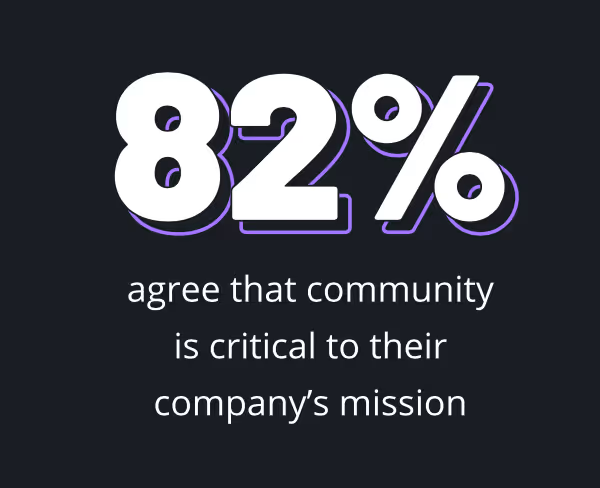
However, we must recognize the new area we decided to track in this year's report: layoffs. The findings show that layoffs are a growing concern in the industry. Within two years, 12% of community professionals have been laid off, and almost half of those layoffs occurred within the last six months. It's no wonder that 59% of respondents are concerned about losing their job. Community investment can be seen as a "nice-to-have" rather than a necessity when times are tough. But here's the thing: we know that investment in the community is essential, even in the face of economic uncertainty. It's up to us to make the case for why community matters.

And hey, if you feel like you need a change of pace, there's some good news. The data shows that 67% of community professionals are somewhat or very likely to consider consulting as an alternative to a full-time role. Freelancing might only be for some, but it's worth considering as an option when the job market is uncertain.

Community Teams Are Doing More With Less
As the world around us changes, so do the teams that keep our communities thriving. It's concerning to hear that community teams are shrinking and that those who remain are being asked to do more than ever before.
So, here's the scoop: only 54% of community teams have at least two full-time people on their squad. That means over half of the community teams are struggling with limited resources, and those left feel the heat to take on more responsibilities. But that's not all! Community professionals are also more likely to report that they only have one moderator for their message board and that they're managing events in-house.
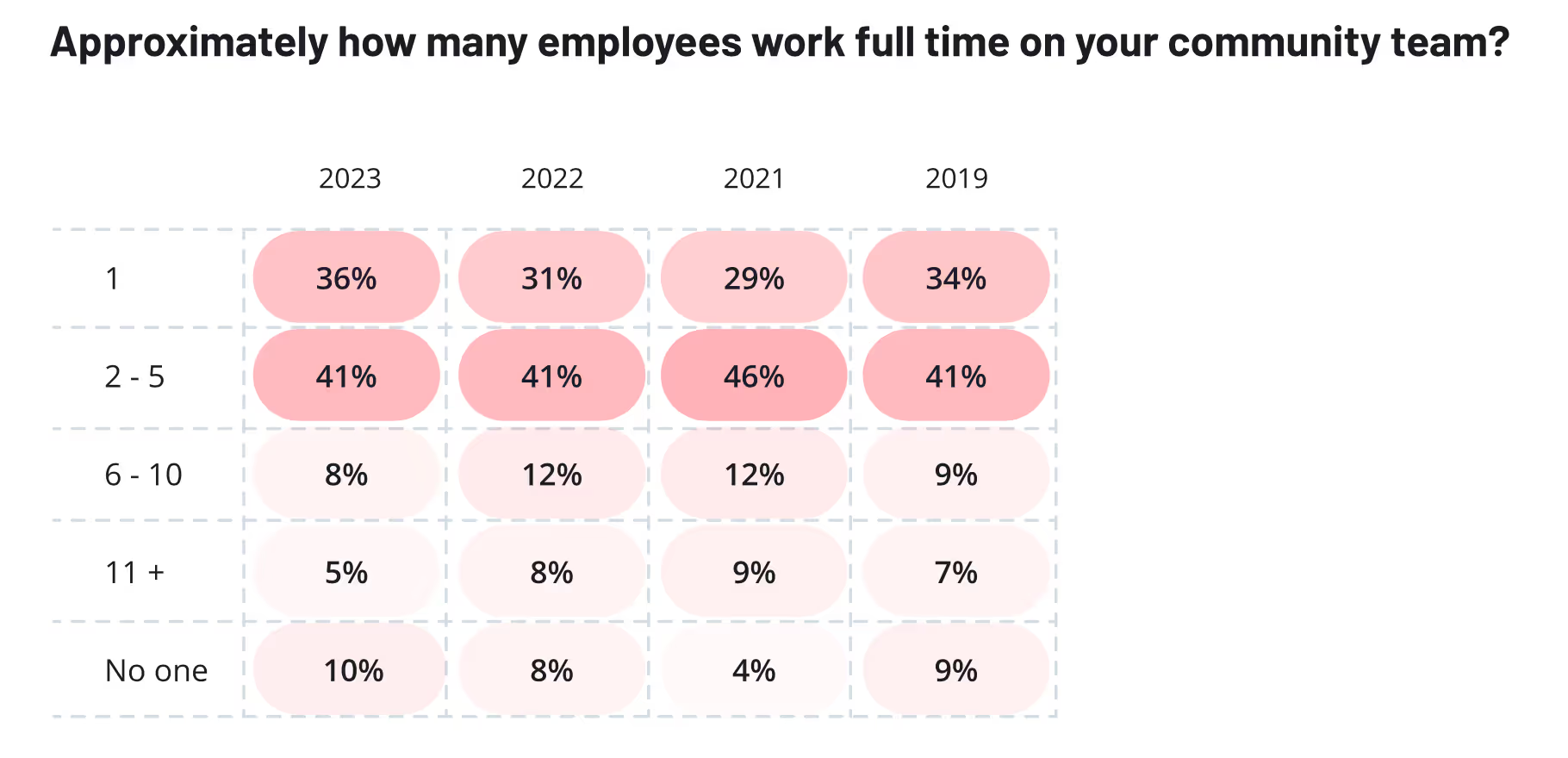
Unfortunately, the problem isn't just a matter of fewer people on the team. It's also about how the work is being divided up. In fact, for most responsibilities, we're seeing fewer teams with dedicated individuals assigned to each task. This means that community professionals are requested to do more with less, and that's no small ask.
It's not all bad news, though. We're happy to report that 90% of community teams still have a dedicated community manager, which is higher than in any other year. And while just 20% of respondents work in a dedicated community department, the rest are embedded in other departments, most commonly marketing. This means the community is recognized as an important part of the overall business strategy.
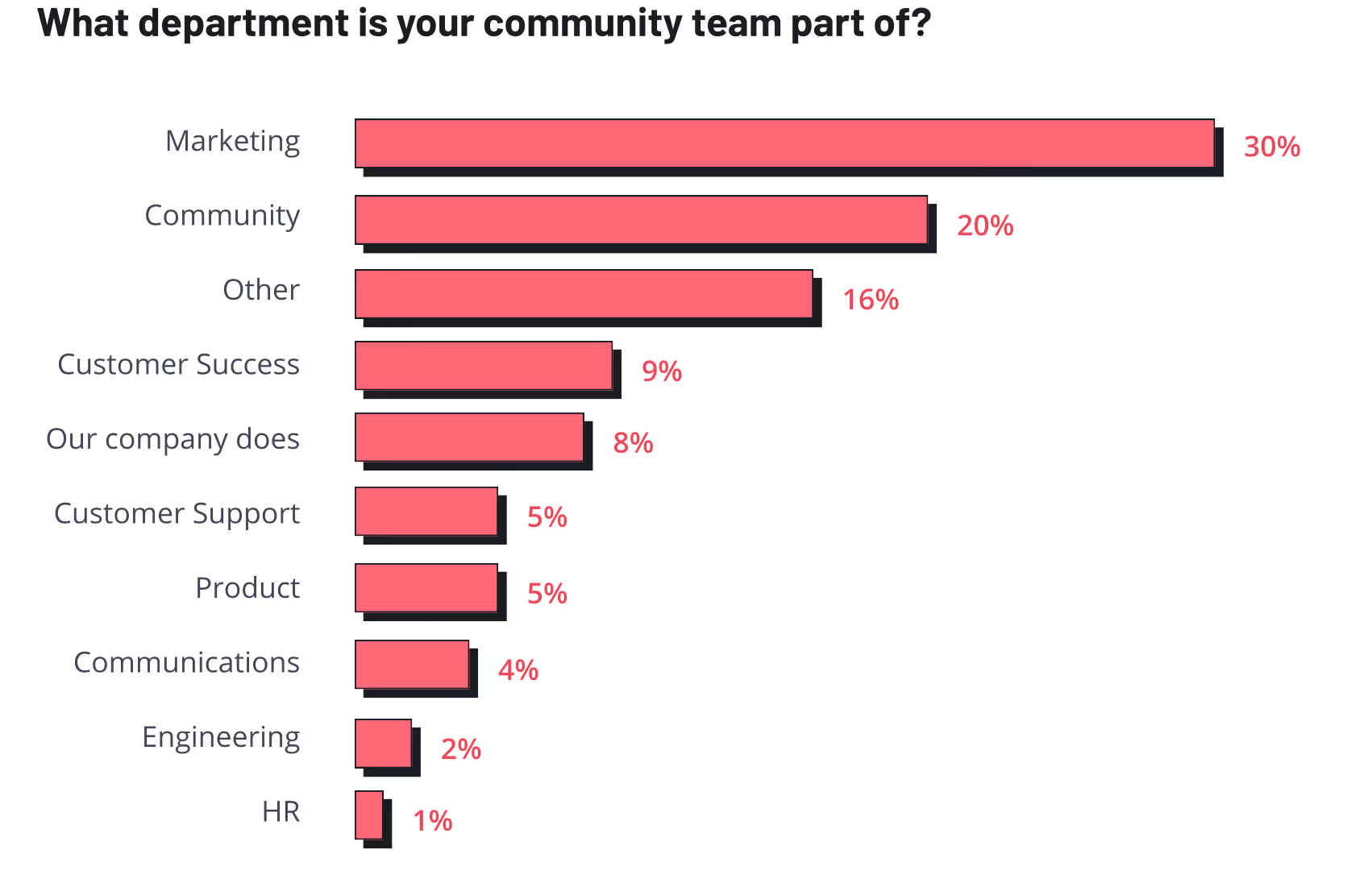
Communities Are Driving Business Success Through Positive Engagement
It's refreshing to see that even in the face of uncertainty, communities can have such a positive impact on businesses. 80% of respondents say the community has made a positive difference in their organization over the past year. But what's even more impressive? Half of all community professionals now say that their communities are extremely or very successful at impacting business goals. That's a fantastic improvement from last year's 43% – Now that's something to celebrate!
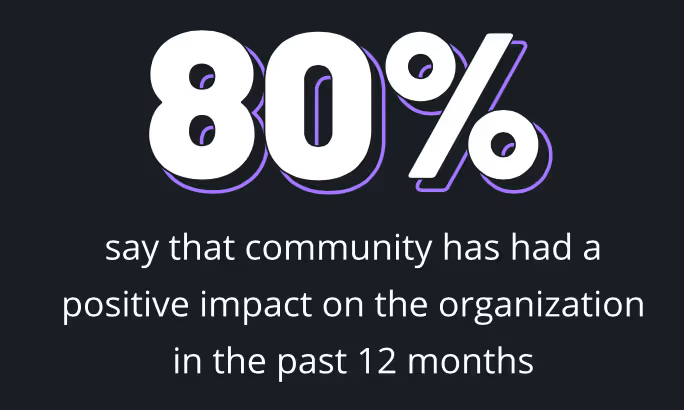
So, what's behind this trend? How are communities managing to make such a difference for their organizations? Well, the data from the findings provide some clues. Thriving communities share some key characteristics, such as having a dedicated team of two or more people working full-time, running customer advocacy or member-hosted events, and using community automation and data tools to manage their operations.
But perhaps most importantly, these successful communities are focused on creating a positive, engaging experience for their members. They prioritize diversity, equity, and inclusion and are constantly tracking metrics to ensure the health of their community. And it's paying off: not only are they achieving their business goals, but 79% report seeing increased interest in the community from other departments in their organization over the past year.
And CMX'ers, this is where commitment comes in.
The Need for Tech Stack Standardization
It's a common struggle to find the perfect combination of tools to manage your community, and it seems like 30% of communities are juggling five or more of them. But even with all those tools, many still miss the mark.
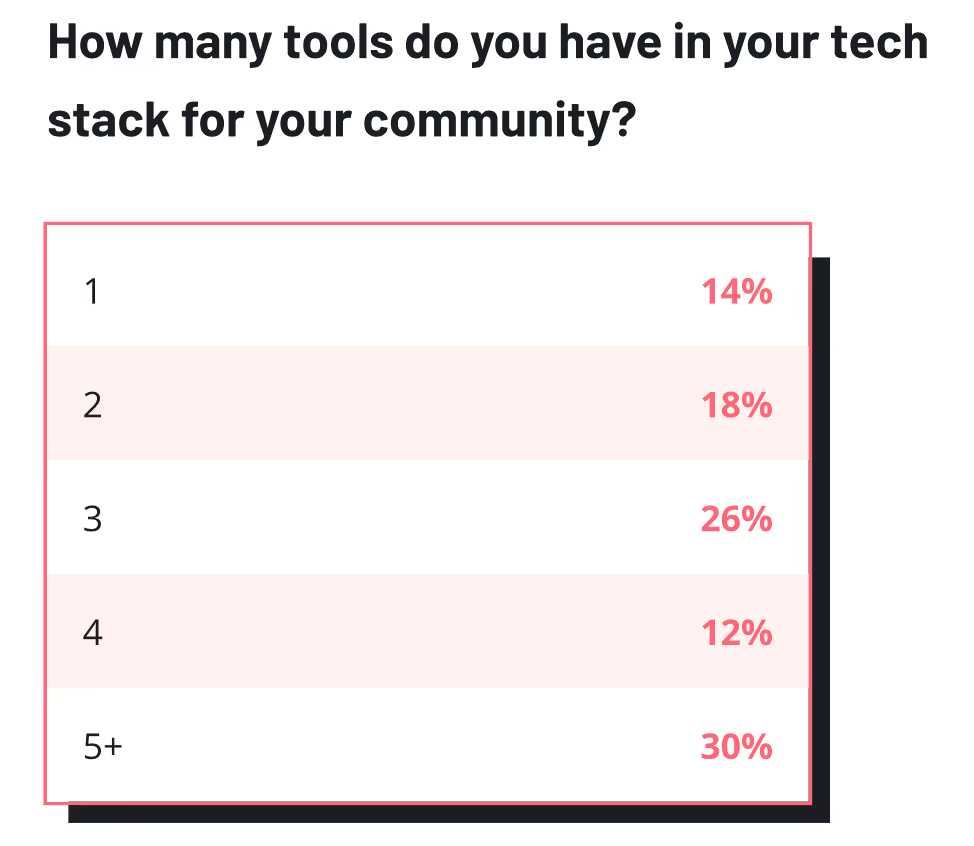
One of the most significant challenges is the manual effort required to manage their community. While automation tools are available to help with some of these challenges, only 36% of community professionals currently use them. But even for those using automation tools, there is very little standardization across tech stacks. When given a list of tools we thought were most common for automation and data aggregation, the most commonly selected responses were "other" and custom in-house solutions. This lack of industry standardization makes collaborating and sharing best practices with other community managers difficult.
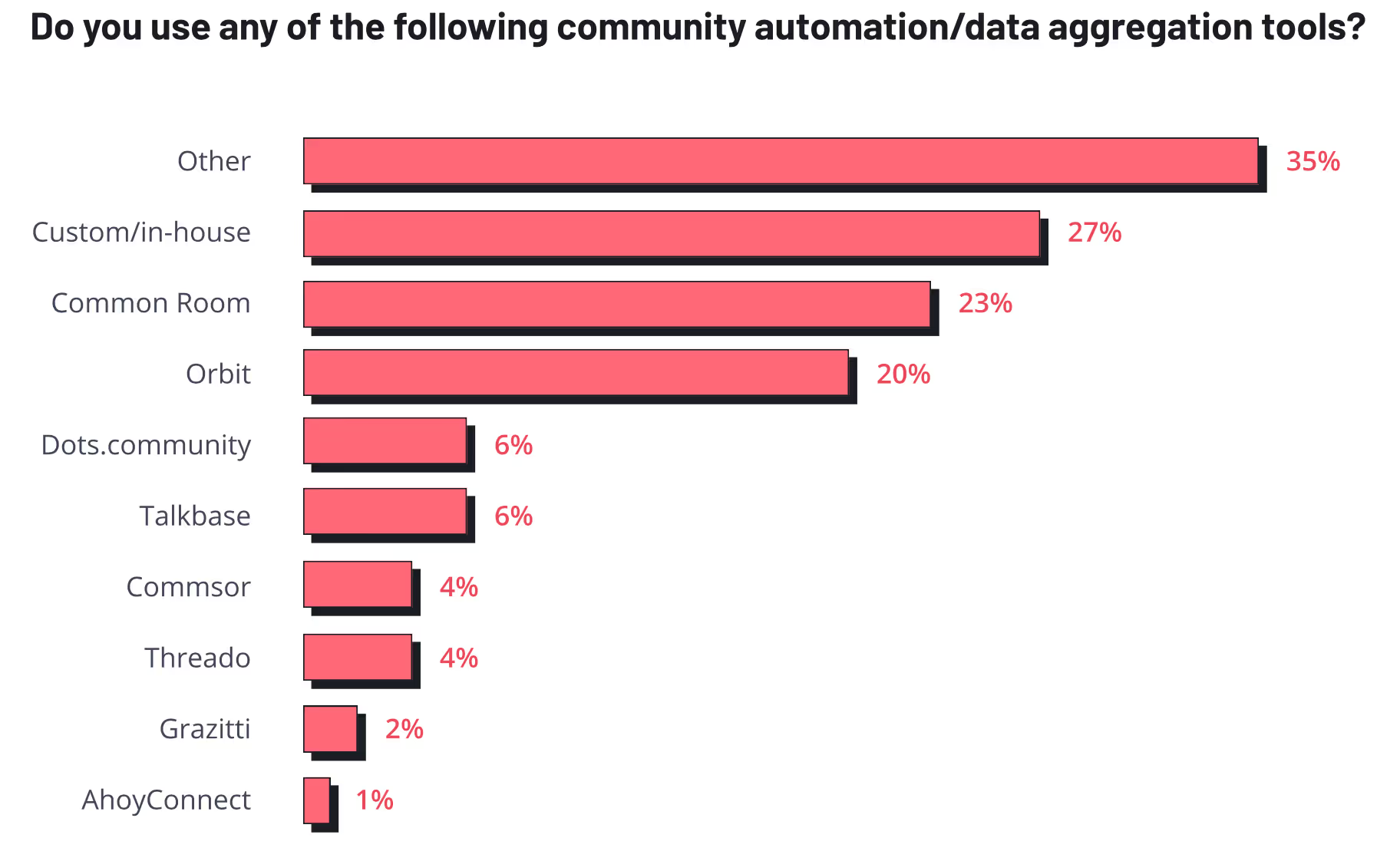
And it's not just about automation. The industry also needs to be better integrated into marketing tools. While 42% of community professionals say their organization has a CRM, only a tiny percentage say it connects community and customer data. This is a huge missed opportunity, as the more data you have about your members, the better you can engage with them.
Virtual Events Here to Stay?
According to our data, it looks like the world is ready to start gathering again!
In-person events have always been a favorite for community organizers, and it's no surprise that the percentage of communities hosting in-person events has doubled since last year. But don't count virtual events out just yet - 90% of communities still love them.
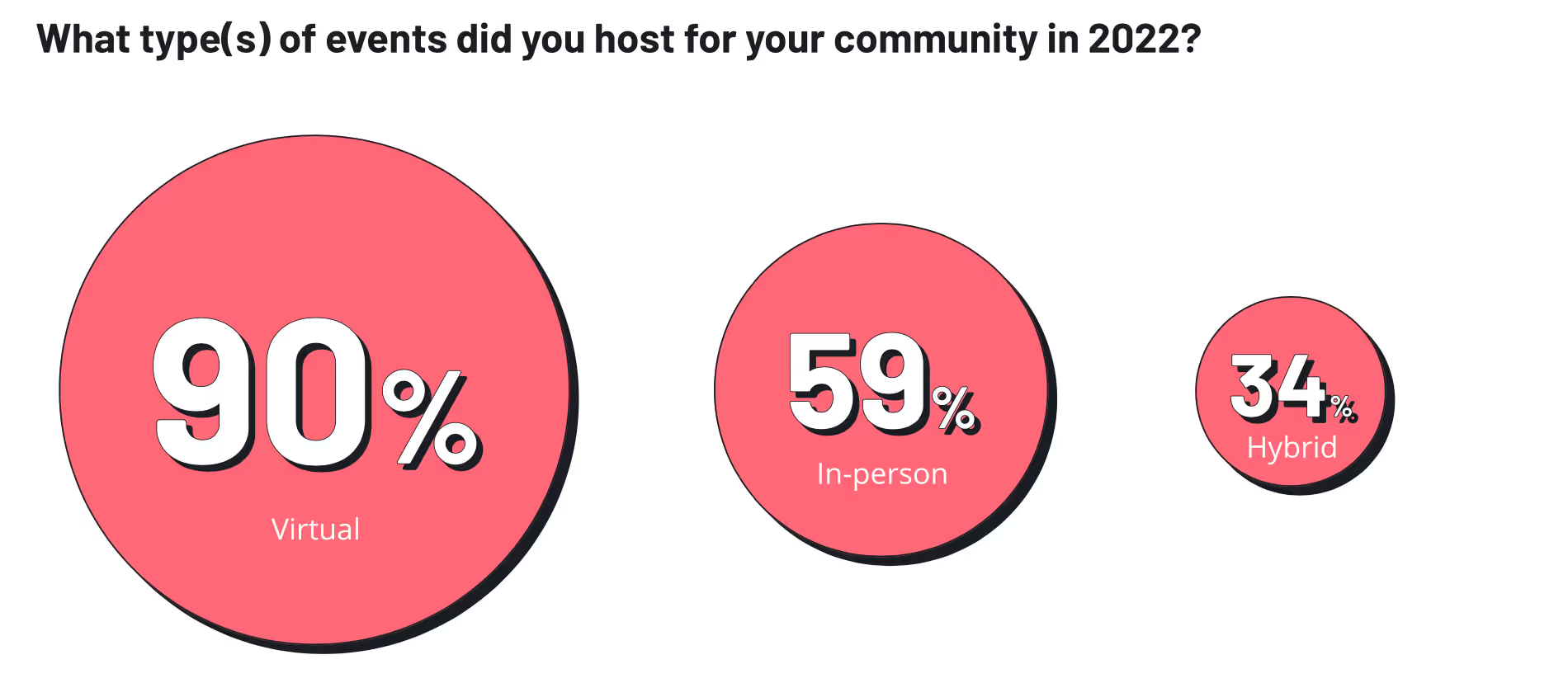
However, the question remains, which is better for your community? Well, according to our findings, in-person events are ideal for 1:1 connections and business impact, while virtual events are better for community engagement and bringing in diverse audiences.
Finding Joy in Making a Positive Impact Despite Challenges
Despite facing numerous challenges, community professionals remain committed to their industry. This year's data has brought to light the areas where community professionals are hoping for change, which include salary, budget, staff, and the ability to make an impact. However, despite these concerns, most community pros are satisfied with their work and plan to stick around for the foreseeable future.
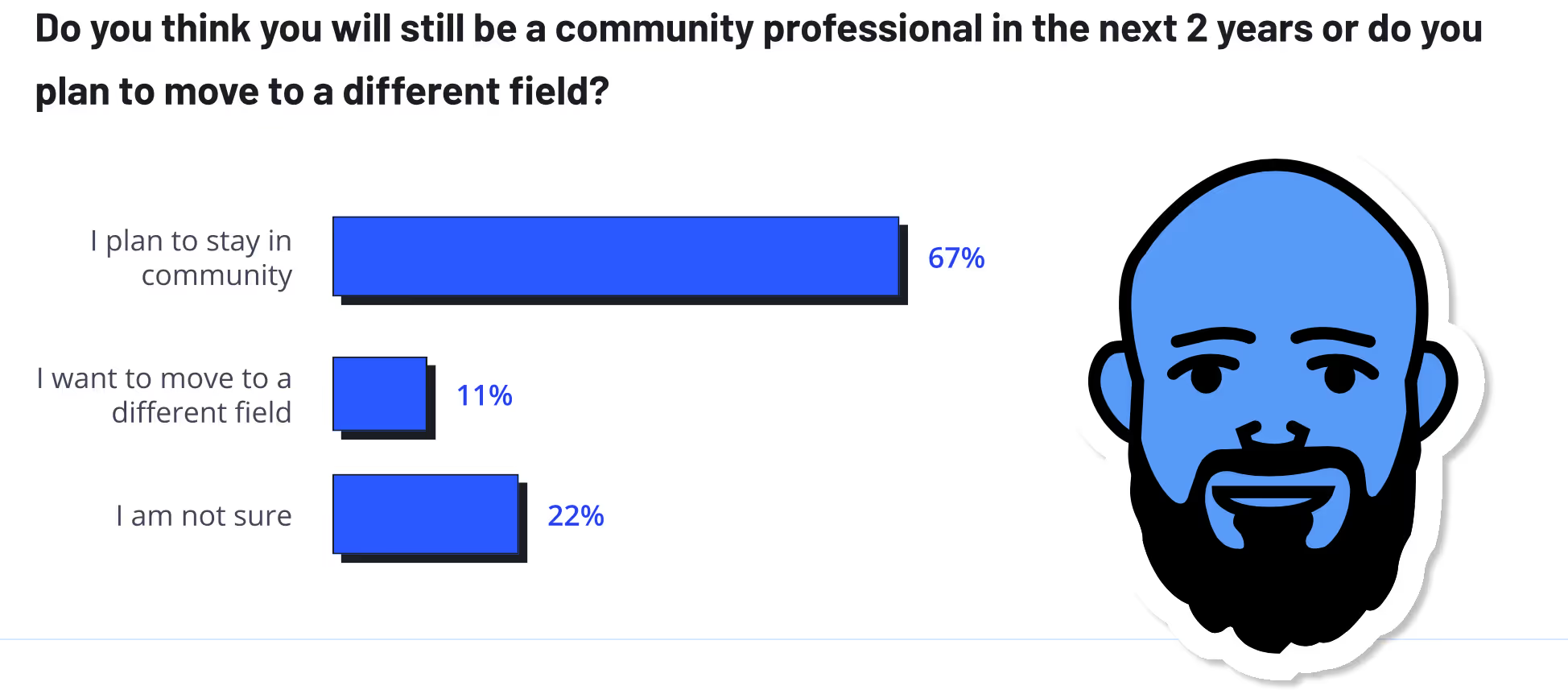
But what about the money? While salaries have increased since last year, community professionals prioritize other factors over monetary compensation. Factors such as their leadership's trust, the ability to make an impact, and having a flexible work schedule were ranked even higher than their salary.
However, even with these important factors in mind, community professionals still face challenges in their line of work. They remain unsatisfied with certain aspects of their jobs, particularly when it comes to salary, budget, staff, and making an impact. Addressing these areas is crucial to keeping the industry flourishing.
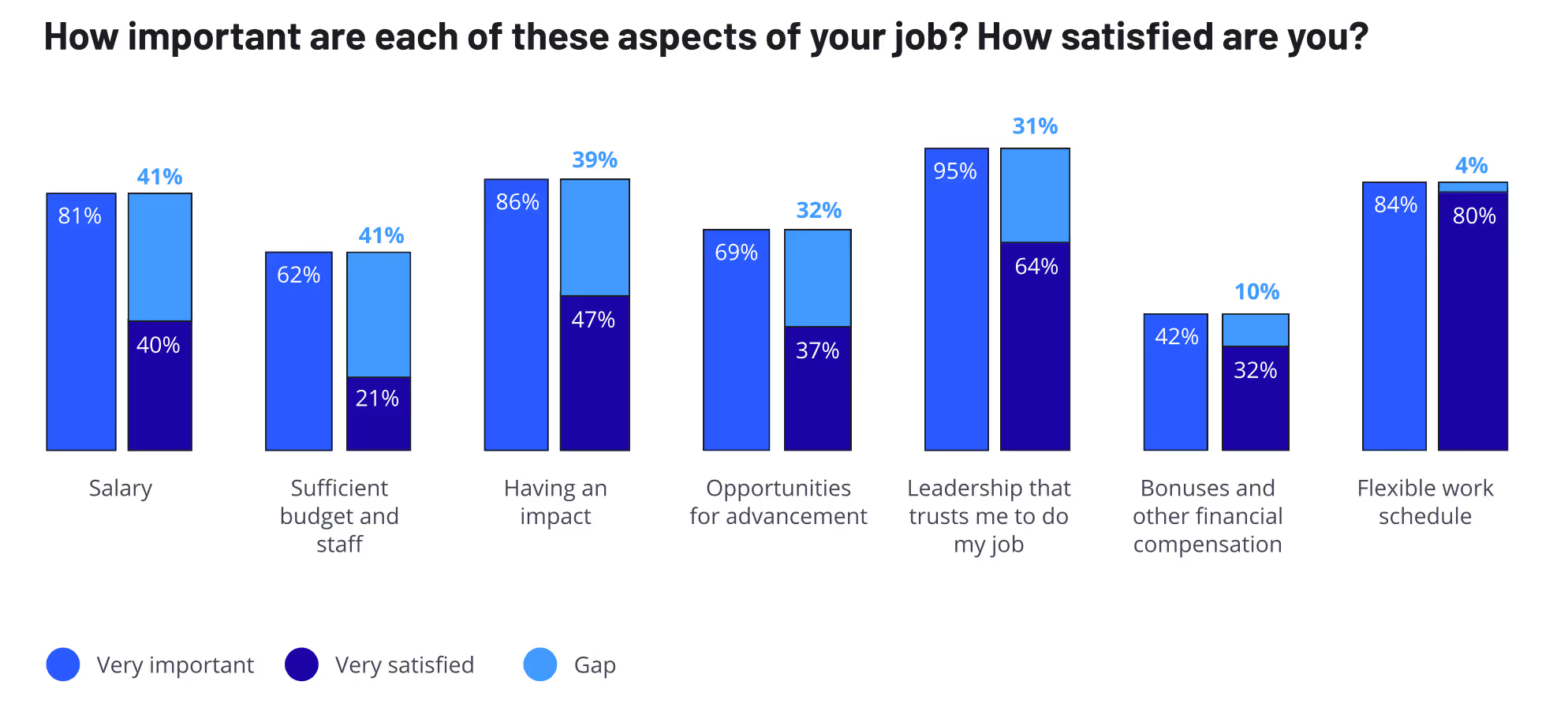
What's more, the majority of community pros continue to show unwavering dedication to their industry, and for good reason. They find joy in their work and derive satisfaction from making a positive impact in the lives of their communities. So, while financial rewards are important, it's the deeper sense of fulfillment that truly drives these professionals to keep going.
Enjoy the Read!
At the heart of any successful community lies a strong sense of purpose and direction. As community professionals, we hold the power to shape the future of our industry. This report provides valuable information to help us do just that.
Whether you're a community manager or business leader, there's something in this report for you. We hope you found the key insights interesting, and if you're hungry for more, we encourage you to download the full report for additional insights and information.

